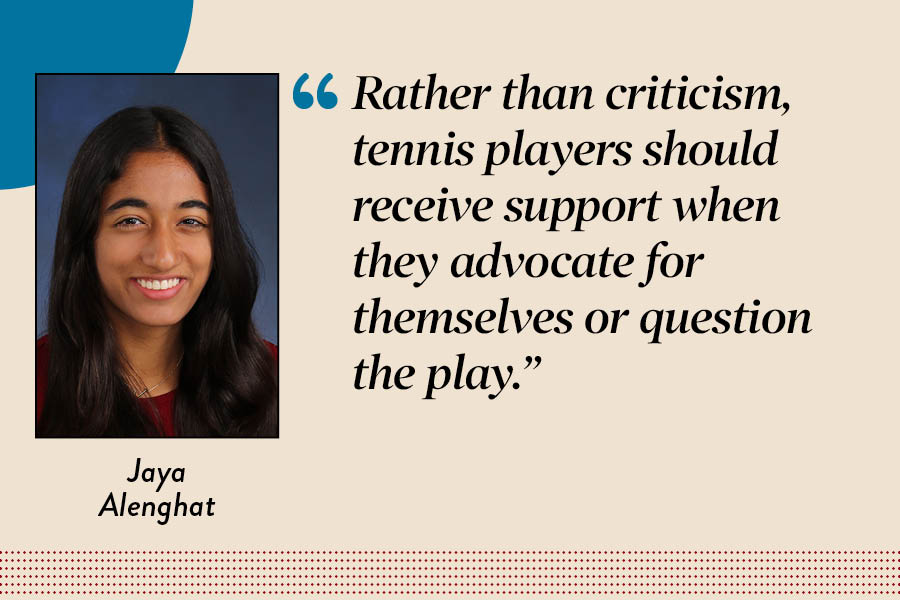It’s a hot summer day in the middle of August, and the crowd watches as you battle for matchpoint. The rally feels never-ending until you hit an amazing shot down the line. You watch as the ball hits the white line of the court and bounces up to hit the fence, but right before you can scream in celebration, your opponent calls, “Out!”
You look up in confusion as her team applauds and chants. Is it too late to protest? Will the other team think you are a sore loser? Now you are second-guessing yourself: maybe you were too exhausted and tired to see that the ball was out.
Tennis players around the world face physically and mentally challenging situations during their matches. Rather than criticism, tennis players should receive support when they advocate for themselves or question the play. Even if you are not a tennis player or fan, it is important to understand that actions which might seem aggressive at first, can be derived from unfair and difficult situations. Self-advocating in situations like these actually require a lot of bravery.
In Coco Gauff’s first match of the 2023 U.S. Open Women’s Singles against Laura Siegemund on Aug. 28, Ms. Gauff argued with the umpire about her reluctance to give her opponent time violations. From the beginning of the match Ms. Gauff was irritated with how long her opponent was taking between points, but she only spoke out about it in the third set when Ms. Siegemund claimed she was not ready as Ms. Gauff served.
What was most noticeable about this moment was the crowd’s encouragement. While some might argue that tennis crowds should be quiet to allow concentration, players often need support in times like these. According to an NPR article, Ms. Gauff’s self-advocacy made the issue “much harder for the umpire to continue to ignore.”
In addition to the crowd’s cheers, Michelle Obama, who was watching the match, defended Gauff’s actions. In an article on usopen.org, Ms. Gauff said, “[Michelle] said it’s good to speak up for myself. I think she was happy that I spoke up for myself today.” Tennis players have to learn how to deal with negative thoughts and self-doubt during games, and hearing encouragement makes this much easier.
Much of the media has compared this incident to Serena Williams’ 2018 U.S. Open match against Naomi Osaka. In this match, when Ms. Williams was accused of cheating, she argued with the umpire and smashed her racquet. Ms. Williams has been stereotyped as aggressive and violent when many are not aware of how mentally difficult a tennis match can be.
Ms. Gauff’s overwhelming support this year has demonstrated society’s improvement over time. Tennis players should not be labeled as hostile or mean during matches when they are simply speaking up for themselves.






















































Stacie Dennis • Sep 15, 2023 at 11:55 pm
This is a very well written article. I agree that you should self advocate, but make sure to be professional about it. In the heat of the moment in a stressful situation, it can be easy to feel like you want to throw your racket like Serena, but you will always be more respected if you handle the situation in a professional manner. Thanks for sharing this experience.